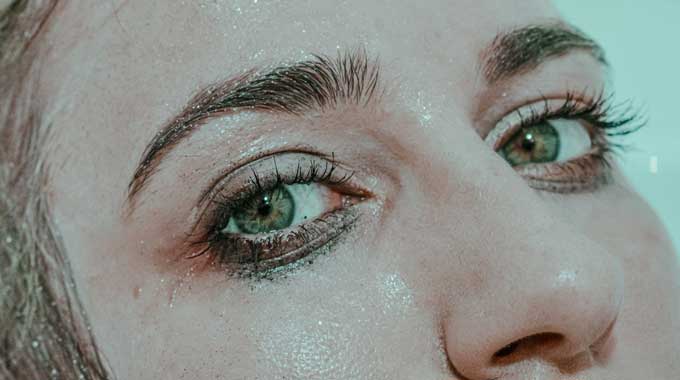If you are a parent, teacher, or friend of a teenager who is misusing alcohol you may ask, why do teens drink? Teens drink alcohol for a number of reasons, in this blog we will look into some of the causes and triggers of alcohol abuse, how to manage it, and ways of preventing underage drinking.
What is Teen Alcohol Abuse?
Alcohol is the most commonly used drug among teens and young adults and the consequences of this are severe. Thousands of young people experience health issues as a response to drinking too much alcohol, resulting in underage drinking becoming a leading public health problem in the United States.
The Centers for Disease Control and Prevention carry out specific research to monitor behavior that incurs health risks in teens between the ages of 13 and 17. This includes the use of alcohol and illegal drugs.
2019 results from one study by the CDC found that 15% of teens had their first drink before the age of thirteen. Further research found that 29.2% of high school students currently drink alcohol.
Research by the National Institute on Alcohol Abuse and Alcoholism found that 90 percent of drinks consumed by teens are binged. Binge drinking is defined as drinking alcohol to a level that brings blood alcohol concentration to 0.08 percent or more. In adults, this usually equates to around four or more drinks for a woman or five or more drinks for a man. In youth, this is usually even less, with three or more drinks for a girl, and three to five drinks or more for a boy, depending on their build and composition.

What Are the Risks of Drinking Alcohol?
Teenage drinking can be just as, and at times more dangerous, than adult drinking. In the United States alone, excessive drinking is the cause of death in 3,900 young people, and responsible for 225,000 lost years of potential life in youths below the age of 21.
So what makes underage drinking so risky?
Physical Risks
In the short term, adolescent alcohol use can lead to hangovers and lowered immune systems. Sometimes the consequences of hangovers mean that young people miss out on school or social activities.
Teens who drink increase the risk of physical and mental illness, including addiction to other drugs. Adolescent alcohol use increases the risk of developing a number of physical conditions such as high blood pressure and obesity. It can also lead to alcohol poisoning which can result in low blood sugar, vomiting, seizures, and in some cases, coma.
Alcohol affects emotional and psychological well-being, which can lead to violent and aggressive behavior. In some cases this can result in physical or sexual abuse, in other cases it can lead to homicide or suicide.
Development Problems
Using alcohol as a teen can result in impaired or damaged development. This can impact adult well-being. Young people who drink alcohol are at risk of memory issues, disrupted brain development and functioning, and stunted growth and sexual development.
Teen drinking can also lead to increased chances of developing a substance use disorder, both imminently and later in life. Research by the National Institute on Drug Abuse suggests that young people who display symptoms of substance misuse are not likely to grow out of their addictive tendencies in adulthood.
Social and Behavioral Risks
Teen drinking can lead to reduced judgment and danger assessment in several situations. This can lead to social and health risks. Young people who are drinking alcohol may engage in unsafe, unprotected sex, which can lead to sexually transmitted infections or unplanned pregnancies. They may also experience social issues such as fighting or loss of normal teenage experiences.
Underage alcohol use can lead people to engage in risky behavior and risk-taking such as drunk driving, increasing the chances of being involved in a motor accident.
Legal and Educational Consequences
Engaging in underage drinking can lead to issues at school such as high rates of absences or failing classes. Some young people may run into legal issues as a result of their drinking, such as driving illegally or being physically violent.

Why Do Teens Drink Alcohol?
Given the extensive list of issues that can stem from underage drinking, you may find yourself asking why teens drink at all. We know from research that not all teenagers drink, so below we look at factors that contribute to this risk-taking behavior.
Drinking alcohol at a young age is commonly associated with dissatisfaction, pain, or distress. Some young people may drink alcohol as a response to anger they are suppressing, when under the influence it is easier to express these feelings. Other youths may drink to numb feelings of sadness which could be associated with grief, loneliness, or mental health issues. Alcohol is also used as an escape, young people may crave the initial feelings of calm and happiness that drinking gives them. Drinking alcohol at a young age is sometimes linked to asserting independence or rebelling against authorities.
Underage drinking is not restricted to one gender or demographic, although research suggests that it is impacted by these things. Throughout the 20th century, boys were more likely to engage in drinking and binge drinking than their female counterparts. Over recent years there has been a reversal. Underage drinking has been reduced in teen boys, with more teen girls reporting alcohol use and binge drinking than boys.
We look at some answers to the question, why do teens drink?
To Feel Accepted
Some young people drink in response to peer pressure from their friends or other young people. They may feel that everyone else is drinking and they will be left out if they don’t.
It’s normal for young people to have low self-esteem and a lack of confidence during their teen years. This is a time of significant changes and trying to ‘fit in’ can feel very important. Many young people begin drinking as a way to be part of the group. They may feel that other people won’t accept them if they don’t start drinking too. Peer pressure is consistently described as one of the main reasons why adolescents drink.
Additionally, alcohol increases confidence and lowers inhibitions which can make socializing easier. Young people who struggle with social anxiety may find that alcohol reduces their anxious feelings.
To Feel Happy
Alcohol affects the central nervous system, when we first drink our body releases extra dopamine which travels to the reward center of our brain making us feel good. Young people may drink to achieve this feeling of euphoria. They may be looking for feelings of happiness that they can’t find elsewhere. This can be the start of an addiction, given that alcohol interacts with our pleasure and reward system.
To Escape
One reason teens drink is to escape difficult feelings and emotions. Alcohol is often used to numb emotional distress which may be associated with mental illness such as depression, or anxiety disorders. Mental health conditions such as these, combined with low confidence, isolation, and confusion can see young people using alcohol to self-medicate.
Even without mental health issues, adolescence is a difficult time with so many changes and developments. Teens and young adults have to cope with relationship issues at home and school, family stresses, and fluctuating hormone levels, amongst other things. Challenging teen years can lead people to drink alcohol as a way of coping.
To Manage Change
Throughout the teenage years there can be a lot of change to manage, both within the individual and around them. This includes changes to their body, friend groups, family life, school, or moving house. These changes can be a lot for young people to manage, and drinking alcohol may be a way of managing the challenges.
To Try it Out
Alcohol is easily accessible and it’s widely accepted in the United States. People are usually aware of alcohol from a young age, they may see family members or friends drinking, and they may be curious to try it. In our teenage years, it is natural to seek out new experiences, including ones that may feel exciting, new, and even dangerous. This is a natural time for people to explore what is around them, test out different experiences and discover what they like. Alcohol may be part of this exploratory phase.
Rebellion
Drinking alcohol can sometimes be an act of rebellion. Throughout their teen years, it’s likely that young people will come against some resistance from adults around them. It’s common for youth to react to rules or discipline with rebellious behavior, for some people this may be consuming alcohol. Some young people seek attention from adults or others around them and they may feel the only way to achieve it is by rebelling.
Childhood Trauma
Childhood experiences can greatly impact a young person’s behavior. Substance misuse, physical, verbal or sexual abuse, or mental illness in the family can lead to unprocessed trauma. Teens who are dealing with the symptoms of trauma alone may turn to alcohol before the legal drinking age.
Exposure to Alcohol Abuse
Alcohol is often represented on screen, in films, and on TV. Additionally, many young people are around people who consume alcohol during their childhood. If adults around have drinking problems or drink excessively, it can lead to a normalization of drinking.
Even in our teenage years, we are capable of modeling our parents’ behavior. If they are regularly drinking alcohol around their children they put them at risk of developing an unhealthy relationship with alcohol.
Education
In the United States, alcohol is so ubiquitous we even see adverts promoting drinking. If young people are not receiving adequate information about the consequences of alcohol they are at greater risk of abusing it. Many teachers and parents are worried about their children drinking alcohol so they avoid the topic completely. Unfortunately, this can lead to a lack of clear information.
Genes
Genetics and family life play a big part in developing a substance misuse disorder. The APA suggests that children who have a parent with an alcohol use disorder are between four and ten times more likely to also develop a drinking problem. This is in part to do with genes but is also related to environmental factors such as the normalization of alcohol.
Signs of Alcohol Abuse
Understanding common signs of alcohol misuse can help you or a young person in your life seek help as soon as possible. The good news is, with early intervention problem drinking can be effectively treated.
Some of the common indicators of alcohol abuse and alcoholism can also be signs of other mental health conditions or substance use disorders. If you believe someone you know is at risk of developing a drinking problem, seek professional advice.
Signs of a drinking problem include:
- Fluctuating mood
- Lowered school attendance and grades
- Anger or violence
- Fatigue
- Letting go of personal hygiene
- Difficulty concentrating
- Memory problems
- Coordination issues

What Does Research Say about Youth Drinking Risks?
The risk factors associated with youth alcohol abuse are extensive. They range from social, to legal, to physical and mental health risks.
Youths who engage in drinking are more likely to be victims and perpetrators of physical and sexual assault. Alcohol causes people to lose their inhibitions and make poor judgments about what is safe.
As aforementioned, one of the main risk factors associated with youth drinking is developing further substance use disorders. People who start drinking below the age of fifteen are more likely to go on to develop an alcohol problem as an adult. Furthermore, they may go on to develop an addiction to other drugs.
Alcohol causes people to make poor judgments, when this is combined with other dangerous behavior such as driving, it can be extremely risky. A study by the Centers for Disease Control and Prevention found that 5% of U.S high school students drove a vehicle after drinking alcohol. Further to this, 17% of high school students reported riding in a car with a driver who had been drinking alcohol.
Preventing Underage Drinking
There is no easy way to ensure a young person never engages in problem drinking. Given the accessibility of alcohol, it will likely always be one of the most commonly used substances by young people. However, there are steps you can take to make the lives of young people safer, whether you are a parent, friend, teacher, or young person yourself.
Below we look at some important steps to reducing the risks of alcohol.
Face the Issue
Many parents will be in denial about their child’s behavior. Accepting that they are drinking at a young age can bring about all sorts of emotions; anger, guilt, shame, and regret. These feelings will not help you or your child. It’s normal to feel upset or concerned, but if you see signs of drinking or substance abuse seek help right away. There are many support groups for parents which can help you to feel less isolated and well-supported too.
Communication
Maintaining strong communication with the young person in your life is crucial. If they feel understood and listened to they are more likely to be honest with you about their issues. Some adults may feel intimidated about speaking to a young person about drinking problems, but staying silent will only increase the problem.
Listening to what is going on with your child can help you to understand the motives of their drinking. If you are aware of the triggers, fears, and emotions which lie behind your child’s alcohol use, you can begin to guide them in the right direction.
Educate Yourself
Learning about alcohol use disorders and how they take hold is a helpful thing you can do for your teen. Alcohol abuse and alcoholism are complex conditions that require patience and determination to get through. Try to find a safe space where you can learn about alcohol, be that in a support group, online, or through mental health practitioners.
Understanding substance abuse yourself means you can help your child to learn too. It’s possible they haven’t had clear information about the consequences of substance use, hearing it from a caregiver who loves them can be the most effective education.
Look After Yourself
Taking care of your own mental well-being may not be your priority right now, but it should be. If you are not feeling emotionally strong it will be very difficult to take care of your young person. If you are able to seek mental health support for yourself, it can greatly improve the situation for everyone. You are a role model for your child and if they see you taking care of yourself, they are more likely to incorporate this behavior into their own lives.
Distraction
If your young person is trying to recover and resist alcohol use, you can help them by filling their time with healthier lifestyle choices and activities. This could mean spending time together in the garden or park, going for walks or swimming together, sewing or cooking. All of these activities are mindful and can be extremely effective for improving mental health.
Create Clear Boundaries
Whatever your parenting style, it’s important to create clear boundaries for your child. Don’t feel afraid to ask them who they are spending time with, invite them over to the house and have a meal together so you can see for yourself how they interact. Good friends are important for your child’s well-being, so it’s crucial not to deny them of that time.
Having clear rules about what is allowed and what isn’t can help a young person recover. This doesn’t just involve alcohol use, rather it can include what you expect from each other as family members.
Treatment Center
If you believe your young person is struggling with alcohol or substance use, get in touch with a treatment center today. At Clearfork, we are a residential treatment center for teens, we know how challenging drug and alcohol abuse is for both teens and their parents.
Focussing on your child’s recovery we run a licensed education program to make sure your child doesn’t slip back academically. We offer medical detox, with residential and outpatient treatment options available depending on your circumstances. Our experienced nursing staff is on hand round the clock to ensure your child’s safety and well-being is prioritized. Furthermore, we incorporate the whole family unit in our treatment, with our family-intensive week.
We understand that alcohol and drug abuse usually start as a response to unmanaged mental health symptoms, and many people turn to alcohol as a response to anxiety or depression. We treat these conditions at the same time as tackling their alcohol use so that your young person can achieve a sustainable and complete recovery.
Get in touch with us today to speak to a member of staff at Clearfork Academy, we are confident that our team can help you and your child.

Originally from the Saginaw, Eagle Mountain area, Austin Davis earned a Bachelor of Science in Pastoral Ministry from Lee University in Cleveland, TN and a Master of Arts in Counseling from The Church of God Theological Seminary. He then went on to become a Licensed Professional Counselor-Supervisor in the State of Texas.
Austin’s professional history includes both local church ministry and clinical counseling. At a young age, he began serving youth at the local church in various capacities which led to clinical training and education. Austin gained a vast knowledge of mental health disorders while working in state and public mental health hospitals. This is where he was exposed to almost every type of diagnosis and carries this experience into the daily treatment.
Austin’s longtime passion is Clearfork Academy, a christ-centered residential facility focused on mental health and substance abuse. He finds joy and fulfillment working with “difficult” clients that challenge his heart and clinical skill set. It is his hope and desire that each resident that passes through Clearfork Academy will be one step closer to their created design.
Austin’s greatest pleasures in life are being a husband to his wife, and a father to his growing children. He serves at his local church by playing guitar, speaking and helping with tech arts. Austin also enjoys being physically active, reading, woodworking, and music.




